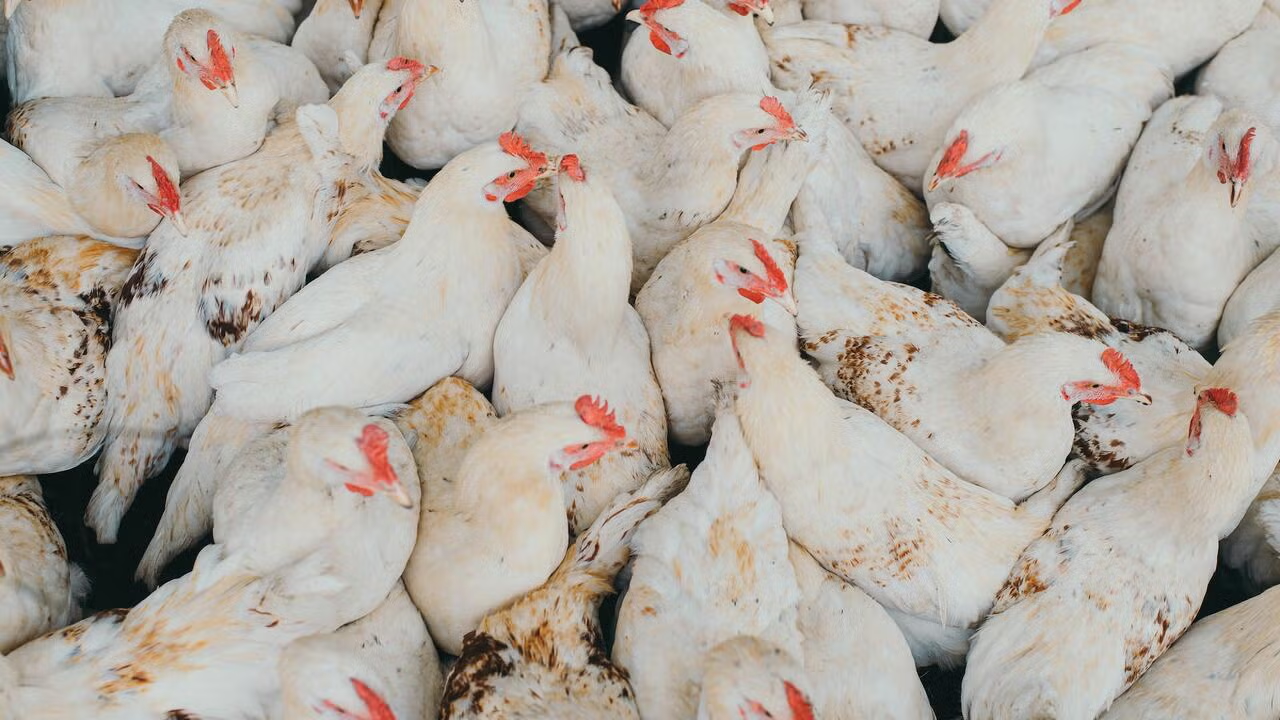
Bird flu spillover to mammals a cause for concern
Increasing zoonotic diseases caused by human encroachment on wildlife habitat

Increasing zoonotic diseases caused by human encroachment on wildlife habitat
By Jon Parsons University Relations The WHO recently warning that bird flu spillover to mammals needs to be monitored closely and that countries need to be prepared for a potential outbreak affecting humans. University of Waterloo biologist Dr. Christine Dupont says Canada should heed that advice.
The WHO recently warning that bird flu spillover to mammals needs to be monitored closely and that countries need to be prepared for a potential outbreak affecting humans. University of Waterloo biologist Dr. Christine Dupont says Canada should heed that advice.
“This strain doesn’t seem like just a regular bird influenza,” Dupont says. “It’s a highly pathogenic avian influenza. Bird influenza is common, and these viruses evolve quickly. It’s monitored intensely because there is potential for bird flu to become a human pandemic.
In recent months there have been reports of bird flu spillover infecting mammal species like mink and seals. A spillover is when a virus “jumps” from one species to another.
“Spillover events are a worry, especially when you’ve got a virus like this, that’s highly pathogenic and causing infection in a lot of different organ tissues,” Dupont continues. “Pandemics we’ve had with influenza, like the swine flu and the Spanish flu, those all had their origins from spillover events that trace back to bird flu.”
Dupont says that right now, one of the things Canadian authorities need to be doing is close monitoring, not just of the affected wild bird populations, but of domesticated birds and other farm animals. She notes that pigs are a common intermediary species for bird flu.
“Once you’ve seen it and located a new flu virus in humans, that’s the point at which there is an opportunity to prevent an epidemic,” Dupont says. “The problem is that by the time it’s detected, it’s often already out there. As soon as sustained human-to-human transmission happens, there’s different controls like what we did with COVID, such as lockdowns, masks and other restrictions.”
Dupont also points out that human populations are in general experiencing a rise in zoonotic diseases of all kinds. Humans are encroaching into wildlife habitat, such as through mining, logging and new settlements. That encroachment is increasing the probability of spillover epidemics and pandemics.
With this current bird flu outbreak, Dupont says that it is likely there will be another major peak in activity as birds start migrating and breeding in early spring. That may mean people will see more sick or dead birds.
“People shouldn’t be touching any dead birds, but we shouldn’t be leaving them there either,” she says. “Because that increases the chances that a mammal or another bird might come along and eat it. They in turn may get sick too.”
Dupont advises people to report any sick or dead birds to provincial authorities and suggests finding the reporting numbers for each province on the website of the Canadian Wildlife Health Cooperative.

Read more
Waterloo professor, Rebecca Rooney, discusses the value of wetlands and the risk they face in Ontario

Read more
Nobel Laureate Donna Strickland is set to co-lead a new interdisciplinary network

Read more
City of Kitchener’s Carl Zehr Square goes blue for World Antimicrobial Awareness Week
The University of Waterloo acknowledges that much of our work takes place on the traditional territory of the Neutral, Anishinaabeg, and Haudenosaunee peoples. Our main campus is situated on the Haldimand Tract, the land granted to the Six Nations that includes six miles on each side of the Grand River. Our active work toward reconciliation takes place across our campuses through research, learning, teaching, and community building, and is co-ordinated within the Office of Indigenous Relations.